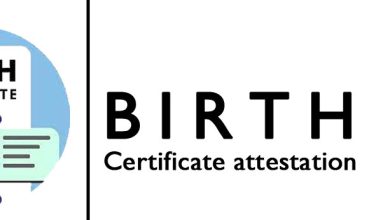Can My Employer Fire Me for Filing a Workers’ Compensation Claim?

If you were hurt on the job in Florida and filed a workers’ compensation claim, you may be worried about how your employer will respond. Many injured workers hesitate to file claims because they fear retaliation, especially the risk of losing their jobs. While Florida law prohibits employers from firing someone just for filing a workers’ compensation claim, the reality can be more complicated.
Understanding your legal protections—and knowing what to do if your rights are violated—can help you safeguard your job, health, and financial stability. A skilled workers’ compensation lawyer in Florida can provide the legal support you need if you believe your employer has retaliated against you.
Florida Law Prohibits Retaliatory Termination
Under Florida Statutes § 440.205, it is unlawful for an employer to fire, threaten to fire, or otherwise retaliate against an employee for filing a valid workers’ compensation claim or attempting to do so. The law provides workers with protection, allowing them to report injuries and seek benefits without fear of losing their livelihood.
If you are fired because you exercised your rights under the workers’ compensation system, your employer may be held legally accountable, and you may be entitled to damages for lost wages, emotional distress, and even reinstatement in some cases.
When Termination May Be Illegal
You may have a valid claim of retaliation if your employer fired you:
- Within days or weeks of filing a workers’ compensation claim
- After expressing frustration or anger about your injury or claim
- Without providing a clear reason or following company policy
- While other employees in similar positions were treated more favorably
- After you refused to perform duties beyond your medical restrictions
In such cases, an experienced Florida work injury attorney can investigate the circumstances and determine whether you were wrongfully terminated for exercising your legal rights.
When Termination May Be Legal
It is important to note that filing a workers’ compensation claim does not provide blanket job protection. Florida is an at-will employment state, which means employers may terminate employees for nearly any reason, as long as that reason is not discriminatory or retaliatory.
Legal reasons an employer may use to justify termination include:
- Layoffs or downsizing unrelated to the injury
- Legitimate performance issues that predate the injury
- Workplace violations or misconduct
- Inability to accommodate work restrictions for business reasons
This is where many disputes arise. Employers may claim that the termination was based on performance or restructuring, when in reality, it may have been a form of retaliation. A workers’ compensation lawyer in Florida can review employment records, timelines, and communications to uncover evidence of wrongful termination.
Warning Signs of Retaliation After Filing a Claim
If any of the following happen after you file a claim, you may be facing unlawful retaliation:
- Sudden negative performance reviews without prior warning
- Reassignment to a less desirable position or shift
- Hostile treatment by supervisors or coworkers
- Exclusion from meetings, projects, or communications
- Pressure to resign or withdraw your claim
- Threats of disciplinary action for no clear reason
Employers who retaliate rarely admit their true motives. Retaliation often appears subtle, but it can still be proven through documentation, witness testimony, and legal analysis.
Can You Be Fired While on Workers’ Compensation?
Yes, it is possible to be fired while receiving workers’ compensation benefits in Florida. However, the employer must demonstrate that the termination is not related to your injury or your decision to file a claim.
Even if you are lawfully terminated, you may still be entitled to:
- Continued medical care through workers’ compensation
- Temporary or permanent disability benefits
- Vocational rehabilitation services
- Future settlements based on the extent of your injuries
A Florida work injury lawyer can help protect your ongoing benefits and challenge terminations that interfere with your rights under the law.
What to Do If You Are Fired After Filing a Claim
If you suspect that your termination was related to your workers’ compensation claim, take the following steps:
- Gather evidence
- Keep copies of emails, texts, and documents related to your injury and claim
- Save performance reviews, disciplinary notices, and HR communications
Document the timeline
- Write down the dates of your injury, when you filed your claim, and when termination occurred
- Note any conversations or behavior changes after your claim was filed
Avoid signing anything without review
- Do not sign severance agreements, waivers, or settlements without legal guidance
Consult a workers’ compensation attorney in Florida
- An attorney can evaluate your case, preserve your rights, and take legal action if necessary
Filing a Retaliation Claim in Florida
If you were fired in retaliation for filing a workers’ compensation claim, you may be able to file a civil lawsuit against your employer. This is separate from your workers’ compensation case and may result in:
- Compensation for lost wages and benefits
- Payment for emotional distress
- Reinstatement to your job (in rare cases)
- Punitive damages if the employer’s conduct was especially egregious
To succeed in a retaliation case, you must typically show that:
- You engaged in a protected activity (filing a claim)
- You suffered an adverse employment action (termination)
- There is a connection between the two events
A workers’ compensation lawyer in Florida will collect evidence to support this claim, including employment records, witness statements, and medical documentation.
Can I Quit My Job After Filing a Workers’ Compensation Claim?
Yes, you can quit your job after filing a claim, but it’s advisable to consult with a lawyer first. Resigning can impact your eligibility for wage benefits and may limit your access to vocational rehabilitation or settlement offers.
If you are considering leaving your job because of harassment, discrimination, or a hostile work environment, you may have grounds for a constructive discharge claim. A Florida work injury attorney can explain the legal and financial implications of quitting while on workers’ compensation.
Your Rights Are Protected by Law
Workers’ compensation laws are designed to protect employees, not just physically, but legally. You have the right to:
- Report a work injury without fear of retaliation
- File a claim and seek benefits for medical care and lost wages
- Receive fair treatment while recovering
- Challenge any employer conduct that violates your rights
Unfortunately, some employers try to punish workers who stand up for themselves. If you are facing this type of retaliation, you do not have to deal with it alone.
How a Workers’ Compensation Lawyer in Florida Can Help
A dedicated attorney can provide:
- Legal representation if you are wrongfully terminated
- Assistance filing or appealing a workers’ compensation claim
- Protection of your benefits during and after employment
- Guidance on return-to-work issues and modified duties
- Strategic planning for possible retaliation or harassment
Your lawyer is your advocate—someone who understands Florida law and will fight to hold your employer accountable.
FAQs:
Can My Employer Fire Me for Filing a Workers’ Compensation Claim?
Is it legal to be fired while on workers’ compensation in Florida?
Yes, it is legal in some situations. However, if the termination was based on your decision to file a claim, it is considered retaliation and may violate Florida Statute § 440.205.
What should I do if I suspect retaliation?
Document everything, including emails, termination notices, and witness accounts. Then speak with a workers’ compensation lawyer in Florida immediately to evaluate your legal options.
Can I be fired for missing work due to my injury?
If your absence is covered by workers’ compensation and supported by medical documentation, firing you for missed work may be illegal. If you are cleared for light duty and refuse to return, your benefits may be impacted.
Will I lose my workers’ comp benefits if I get fired?
Not necessarily. You may still receive medical care and wage benefits if your injury is ongoing and work-related. However, termination may affect your long-term options, such as vocational rehab or settlement negotiations.
Can I sue my employer for wrongful termination after filing a claim?
Yes. You may file a civil claim for retaliation, separate from your workers’ comp case. If successful, you may be entitled to financial compensation, reinstatement, and other remedies.
Protect Yourself and Your Rights
Filing a workers’ compensation claim should never cost you your job. While Florida law does not guarantee indefinite employment, it does protect you from being fired because you asserted your rights. If you were terminated shortly after reporting a work injury, or if your workplace became hostile after filing a claim, legal help is available.
A workers’ compensation lawyer in Florida can investigate your case, explain your options, and help you pursue justice if your employer crossed the line. You deserve to heal without fear, harassment, or retaliation.





